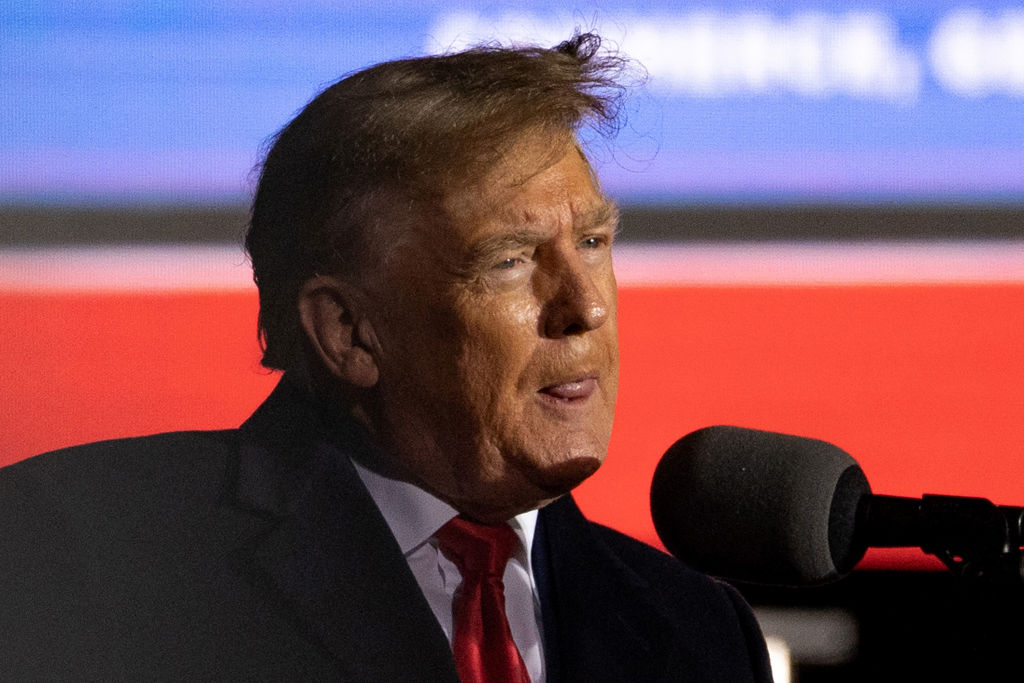The former President was harmed by his opponents' willful lies.
Short Term Gains

5 points that cancel each other out, with the final score to be determined.
1) A positive. What’s clear is that amidst the extreme and bordering-on-insane media narratives—which show no signs of abating—every time Trump gets a chance to speak directly to the people with a normal political speech in hand, he does rather well.
His first State of the Union was a case in point: all sides admitted it went very well, reality briefly shone through the clouds (“I guess this man’s election was not the end of the world, after all”), and then the turbulence of the news cycle suddenly began again.
Since the campaign against Trump—begun by Obama and Clinton with the power of the federal government—aims to fundamentally de-legitimize him, any time he gets to speak in traditional ways he is “normalizing” himself and thereby obtaining at least a marginal win.
In fact, one could make a case that a normal, “just read the words” political speech tour and a habit of giving them every so often from here on out would solidify a 2020 win and a place in history beyond. As Michael Uhlmann suggests.
2) A potential short term positive. Given his solid floor of 40% support, it’s the deeply confused 10-20% of the electorate that matters.
Along with everyone else, Trump’s likely given up on Congress to come up with a suitable compromise on immigration and the budget. If so, the question is how the speech plays to actually wavering voters and meandering independents in the context of ferocious media narratives, especially if Trump starts to make the case for emergency powers for The Wall on the basis of both this speech and his previous compromise offer: “I tried to reason with Congress, but…”
In other words, will this speech undercut the Left’s inevitable response to emergency wall building (Executive Branch Tyranny!) in the eyes of swing voters? What Trump needed to accomplish rhetorically is determined by the ways in which the media tries to browbeat and shame that 10-20% from supporting him, and this speech seemed to give him cover and favor with them, in part because it set forth a plausible argument for immigration reform to the confused and undecided.
3) A historical neutral. The two points above also apply in some ways to previous Republicans, and it often failed to work for them.
Of course, one might well wonder how much the State of the Union really matters for any President, ever.
4) This was a squandered opportunity to call out Congress’s bipartisan failures and put the pressure on it directly, with authority, on immigration and the budget. He could have better described the history of immigration over the last decades and all the broken promises by members of both parties that led to millions of illegal immigrants. He could have condemned Congress for not passing an actual budget for many years. And then he could have said in even stronger terms, to them, in front of the people: “Get it done, or I will do it myself.” Granted, he did say “I will get it built.” And much of the argument could and likely will be accomplished in an emergency powers speech that specifically deals with immigration, or a speech explaining a deal—if one is somehow reached. But the entire framework for this argument could have been—but was not quite—set last night in front of a larger audience. We will find out if the “kinder, gentler” gambit worked soon enough.
5) Similarly, Trump avoided making clear what is really at stake right now in America and what the state of the union really is, given our deepest challenges and opponents. There was no meta-reframing of our situation, calling out the cultural Left in greater detail, as David Sorensen suggested, or an explanation of the regime-level roots of our challenge (“Who are Americans?,” as Colleen Sheehan asks), or direct confrontation of the regime-level challenges we face, as James Poulos suggests. Instead, some of the speech outside of immigration rested on various baubles, which, granted, are completely normal for State of the Union addresses.
But this is not a normal time.
Thus this avoidance feels like a deep loss to me, longer term, especially as Trump only rarely gives the scripted speeches that could likely propel him to even more winning if he but gave them.
But that’s to pine for the speech I wanted to write, which—while needed—may not have been needed last night.
The American Mind presents a range of perspectives. Views are writers’ own and do not necessarily represent those of The Claremont Institute.
The American Mind is a publication of the Claremont Institute, a non-profit 501(c)(3) organization, dedicated to restoring the principles of the American Founding to their rightful, preeminent authority in our national life. Interested in supporting our work? Gifts to the Claremont Institute are tax-deductible.
America's dark wizard to the rescue?
On making the most of history
Two cheers from—and for—Yoo and Delahunty
Some friendly liberal advice to Republicans.
The regime has its man—all it needs now is the crime.






